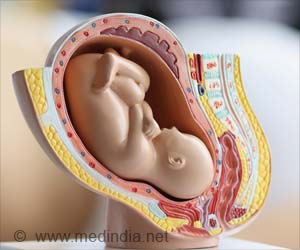Schizophrenics could experience greater brain activity during one particular type of delusion called delusion of reference.

The delusion of reference occurs when people feel that external stimuli such as newspaper articles or strangers’ overheard conversations are about them, says CAMH Scientist Dr. Mahesh Menon of the (CAMH).
The study was an initial exploration of the theory that the overactive firing of dopamine neurons in specific brain regions is involved in converting neutral, external information into personally relevant information among people with schizophrenia. This may lead to symptoms of delusions. “We wanted to see if we could find a way to ‘see’ these delusions during Magnetic Resonance Imaging scanning,” says Dr. Menon. The senior author of the study is Dr. Shitij Kapur, dean and head of the Institute of Psychiatry in the U.K.
A better understanding of the brain activity and thinking patterns leading to delusions could point the way to more focused treatment options, the researchers say.
The study results are based on 14 people with a schizophrenia diagnosis and 15 people in a control group. Participants were presented with 60 statements while in an MRI scanner. For each statement, they were asked whether they felt it was about them.
Twenty statements were specific to each participant, and included details taken from initial screening interviews. The remaining 40 statements were generic, and evenly divided between statements that were neutral (“he collects CDs”) or that had an emotional connotation (“everybody hates her”).
Advertisement
When participants agreed a statement was personal, specific brain areas “lit up” in the scanner, indicating activity in these areas. Among those with schizophrenia, this brain activity occurred even when they said “no” to a statement that was not about them, suggesting that they had greater difficulty in distinguishing what was self-relevant to what was not.
Advertisement
The control group, which was more likely to respond “no” to irrelevant statements, showed little brain activity in response to generic statements.
Even when people with schizophrenia agreed a generic statement was not about them, they took longer to respond and the difference in certain brain activity levels was not as great as in the control group.
Once these processes are better understood, approaches such as attentional retraining therapy, or repetitive transcranial magnetic stimulation (rTMS) may be explored possible treatments of delusions. rTMS is a non-invasive form of brain stimulation currently used for depression treatment.
Further research is needed to expand on these initial findings. For instance, patients in this study were all taking anti-psychotic medication. Other studies could look at people early in illness who are not on medication, and could also follow people over time, before and after they take medication.
It is estimated that one person in 100 develops schizophrenia, a disturbance of the brain’s functioning that can seriously impact the way people think, feel and relate to others. Some people diagnosed with schizophrenia recover almost completely, while others need treatment and support for the rest of their lives.
Source-Medindia











